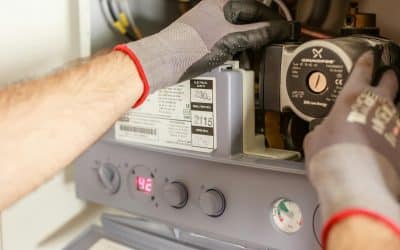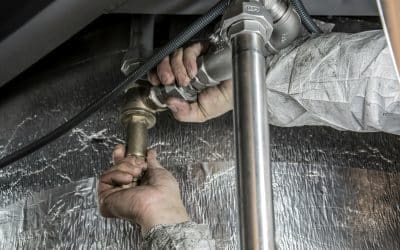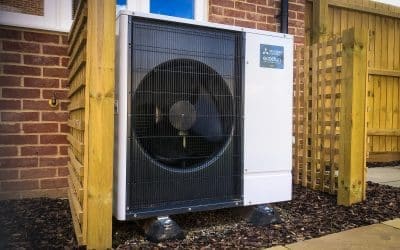As winter approaches, many people are starting to look into underfloor heating systems for their homes.
Underfloor heating is a simple concept that heats your home from the ground up and helps maintain the desired temperature during winter.
However, underfloor heating systems are available in two different types, namely Water Underfloor Heating and Electric Underfloor Heating.
With a number of differences ranging from initial costs to installation process, energy efficiency, these systems largely differ.
Both the underfloor heating systems have their own pros and cons and it really depends on your circumstances in making the best decision for you and your family..
Therefore, in this article, we are going to analyse the battle of electric vs water underfloor heating to help you choose a suitable option for your home.
Water Vs Electric Underfloor Heating
Water underfloor heating systems are one of the most efficient ways to heat up your home with the help of warm water and renewable energy.
On the other hand, electric underfloor heating systems make use of a larger amount of electricity to keep your home warm.
How Water Underfloor Heating Works
Water-based underfloor heating systems work with the help of a number of pipes that are installed beneath the surface of your floor.
Warm water is continuously run through these pipes to create a long-lasting warm surface under the floor that helps keep you and your family warm.
These heating systems can easily work with air source and ground source heat pumps to provide you with efficient heating for the least amount of money.
How Electric Underfloor Heating Works
Electric underfloor heating systems use thin electric wires that are attached to a heating mat and help convert electricity into heat.
These mats are easy to use and are readily available to be installed on the floor. Whereas, another electricity-based underfloor heating system involves the installation of these heating cables beneath the floor.
Let us now explore the various aspects and find out who wins the battle of electric vs water underfloor heating.
Key Differences Between Water and Electric Underfloor Heating
1. Energy Efficient
Using warm water to heat your home, the water underfloor heating system uses approximately 25% less energy than most other heating systems. This promotes sustainability while also saving money.
However, with electric underfloor heating, while the energy efficiency is more than radiators, it’s comparatively lower than water underfloor heating systems.
2. Heating Costs
Using much less energy than other heating systems, water underfloor heating systems save you a lot of money in the long term.
Moreover, when clubbed with an air source or ground source heat pump, the overall efficiency of the water-based system increases to about 40%.
On the other hand, the heating costs for the electric underfloor heating system are slightly higher than water heating.
3. Installation Process
While the installation process for water-based underfloor heating is slightly complicated, it’s nothing the efficient professionals at JL Philips can’t handle.
However, in comparison, electric underfloor heating is much less complicated and takes less time to be installed.
4. Installation Costs
The initial installation costs for water underfloor systems are slightly higher than for electric underfloor heating systems.
However, they save you much more money in the long term than you might end up wasting with an electric underfloor heating system.
5. Maintenance and Speed
The heating and cooling down speed is slower in water heating systems than in electric heating systems.
Moreover, with electric heating systems, you require comparatively less maintenance than with water underfloor heating systems.
Choose JL Philips for the Best Renewable Energy Based Heating Systems
Now that you have a solution to your electric vs water underfloor heating conundrum, it’s time you enquire about one for your home with JL Philips.
With years of experience in providing the best renewable energy-based heating systems to our customers, we aim for absolute perfection.
Our team of highly experienced professionals is always here to guide you throughout the installation process and make your home energy efficient.
Moreover, along with underfloor heating systems, we also offer air source and ground source heat pumps, biomass boilers, and solar PV and thermal panels.
To learn more about our products and services, please visit our homepage or contact us now!





